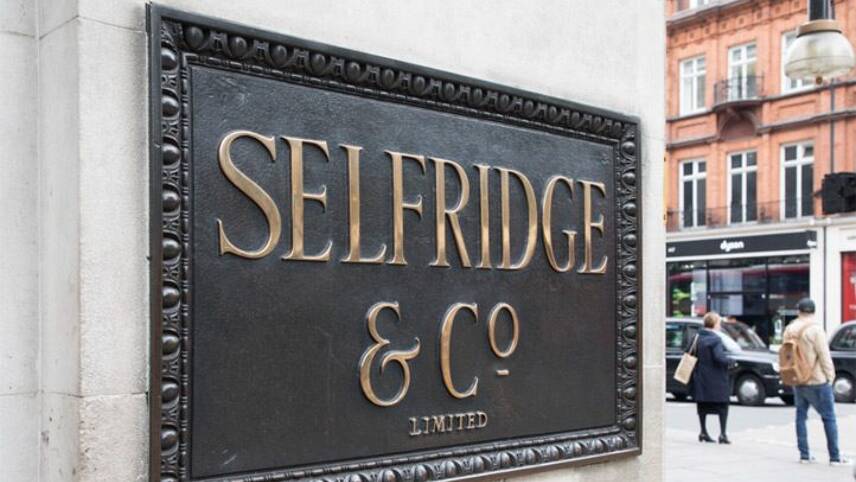Register for free and continue reading
Join our growing army of changemakers and get unlimited access to our premium content

Selfridges will introduce a new 3000 square foot permanent circular fashion hub at its flagship London store.
The department store has today (17 August) announced fresh plans to embed sustainability in retail business models, covering materials, business models and mindsets.
On materials, it has committed to sourcing all high-impact materials used throughout the business from suppliers with third-party sustainability certifications by 2025. Building an existing target to replace palm oil with alternatives certified as sustainable in own-brand grocery products, achieved in early 2019, the new aim will cover materials such as leather and synthetic textiles used in fashion and homewares.
The ‘business models’ pillar of Selfridges’ new plans will see the retailer host repair, resale and rental services for fashion, in partnership with a swathe of the third-party brands that it stocks, including Levi Strauss and Prada.
After hosting a pop-up with clothing resale platform Depop at its flagship London location last year, Selfridges will next month launch ‘Resellfridges’ – its first own-brand resale model. Shoppers will be able to buy and sell vintage and modern garments and accessories from Selfridges’ own-brand labels instore and online.
Additionally, a Repair Concierge service has been launched in four of Selfridges’ major stores across London, Birmingham and Manchester. Staff will signpost customers to the most appropriate local repair services for their clothes, shoes and bags. Refill model pilots for beauty products will also be announced in the coming weeks, as will fashion rental services, expanding on a six-month partnership with online multi-brand rental platform HURR.
The ‘mindsets’ pillar of the new plans, entitled ‘Project Earth’, will see Selfridges bolster its environmental engagement and communications with consumers through online events, interactive activities and product labelling. It has teamed with an array of third-party brands and charities like WWF and the Woodland Trust to host an eight-week programme of webinars and social media takeovers; installed new visual communications pieces made from sustainable materials in-store; and announced the next phase of its ‘Buying Better’ labelling scheme.
‘Buying Better’ was designed to support Selfridges’ ambition of ensuring that 50% of the products it sold had one or more environmental benefits by 2022. It covered organic materials, local production, water-saving methods and cruelty-free products, among other topics. It is now being replaced by ‘Project Earth’ labelling, which will expand these categories both online and in-store.
“In a way we never could have predicted, the cycle of consumption has been broken by the pandemic marking a moment of change in our customers to a more considered mindset and requiring us to set new expectations for retail,” Selfridges’ global managing director Anne Pitcher said.
“We firmly believe evolving the way we do business and supporting change in the way people shop is essential to building a more sustainable business.”
Refashioned approach
With lockdown restrictions having forced many major fashion retailers to close their stores and warehouses, and with fashion shows across the world having to be cancelled, rescheduled or moved online, brands have had to adapt dramatically in recent months.
Gucci made headlines when it announced that it will only be holding two fashion shows annually, down from five. The announcement spurred broader discussions about the ‘death of the fashion calendar’, with brands plotting plans to launch new ranges less often – at least in the immediate future.
These considerations do not yet seem to be front-of-mind on the high street; large fast fashion brands with online offerings have continued to launch new lines on a monthly, weekly or even daily basis during lockdown, placing more of a focus on loungewear and face masks to the swimwear and festival clothing which typically preside over summer shopping lists.
The impact of these changes, compounded with reductions in sales, has been felt in supply chains across the world. Campaign groups like Extinction Rebellion, Remake and the Clean Clothes Campaign have accused high street brands like Peacocks, Topshop and Urban Outfitters of failing to pay for orders which were completed or in production when lockdown forced non-essential retailers to close, cancelling orders at short-notice in breach of contract terms, or pushing for significant discounts from suppliers.
Sarah George


Please login or Register to leave a comment.